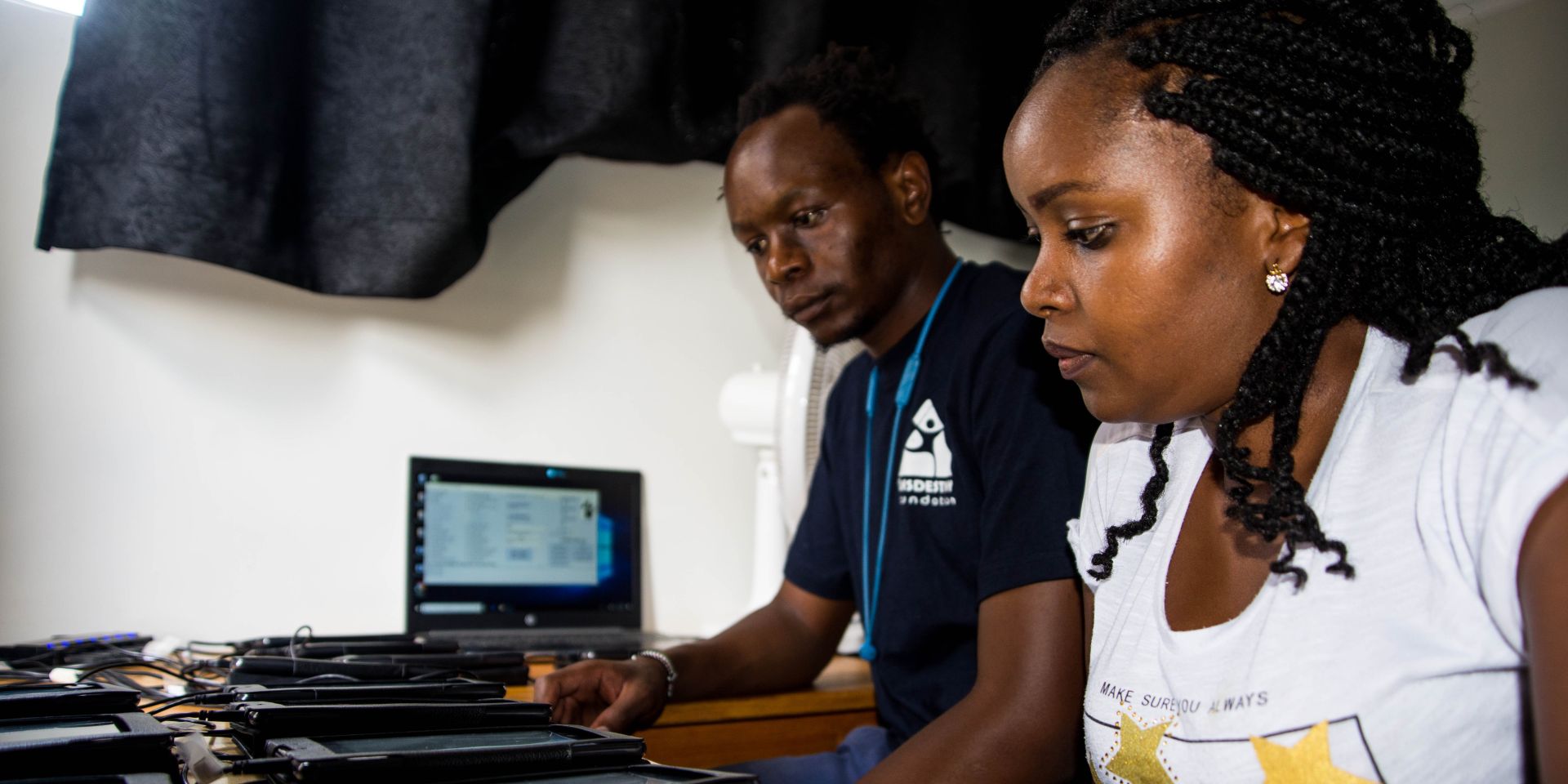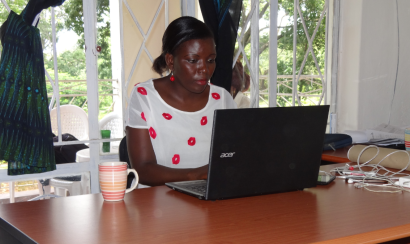Developers for Scale: What a Career in Tech at One Acre Fund Looks Like

At One Acre Fund, our model depends on several moving parts that come together to ensure that we deliver to the farmers we serve. We might not talk about it much, but Technology is a big part of making this happen.
Our tech team is growing with more than 50 staff, working across six countries, that manage a dynamic portfolio of projects everyday. Together, they build and innovate the systems that One Acre Fund runs on.
Some of their work may seem routine for a big organisation like ours --- maintaining internet connections or warehousing tons of data --- but given that many of our offices are rural, these typical tasks become increasingly complex.
Technology is demanding in these areas because often there isn’t much infrastructure to build technically sophisticated systems. But this hasn’t stopped the team from creating products to help us operate better. Over the last few years, developments in some of the countries where we work, like improved cell signals, wider internet coverage, and the availability of cost-efficient devices, have given us fresh opportunities to break new ground.

Leen Van Besien is a developer working on our Back Office Systems (BOS). She credits these recent advances to driving new technology at One Acre Fund. This year, our Field Officers in Kenya, all of them based in rural farming communities, will switch to working on tablets instead of paper, and our tech team is designing the applications that will support this.
“We're in the middle of an exciting push to modernize and streamline our technology. Our old systems involved a lot of manual data entry. Now, with internet access even in the most remote areas, we can provide our field staff with tools to help them manage client accounts and sync data to the cloud whenever they connect,” she says.
A prototype application currently being tested tracks repayments in real-time. These used to be logged manually, first on paper then into databases, which caused a number of delays due to the huge volume of data needing to go online. We even had to factor in periods of delay on our calendars to account for this. When data is live, in real-time, we can guarantee that crucial information is getting to our decision-makers in the quickest time possible, and with the lowest likelihood of error.
Designing Challenges
The team recently relocated from our rural base in Uganda to regional offices in capital cities. Leen moved to Nairobi, some of her colleagues are now in Kigali. Despite the change of scene, they’re still designing software for our rural operations, and it continues to push their thinking on the ideal user experience.
“It comes with a really interesting set of design challenges and learning opportunities. We might have to consider whether our users know that a trash can icon is associated with deleting a record, or think about how can we minimize typing for field staff who are not so familiar with a keyboard interface,” she says.
The repayments app isn’t just a game-changer because it takes all of this data online, designing it also helped our developers gain a better understanding of their end-user. Throughout the entire process, they had to remember that they were building for a group of people who had little to no experience using digital tools, like smartphones or tablets, in their day-to-day lives.

The team ran a series of focus groups at each stage of development, receiving feedback then iterating, from wireframes until they had a product ready for testing. To adapt the tablets for scale, they ran trials with around 200 Field Officers, each with a tablet and detailed instructions. After results were confirmed, the tablets were scheduled to roll out to our entire Kenya program.
Apart from improving efficiency in our operations, new technology is also helping expand the digital literacy of both farmers and field staff. “Next year, we’re planning more tools that will allow Field Officers to access and manage data when delivering inputs. Eventually, as mobile penetration widens in the areas where we work, we'll shift our focus to farmer-facing technologies,” adds Leen.
Working to Scale

We’re currently working with more than 800,000 farmers across a number of African countries, and we hope to be serving over a million next year. Leen believes that our transition to digital is an important step to getting there. “We’ve already scaled tremendously with tools that were mostly paper-based and time-intensive. However, these aren’t as sustainable as we scale,” she explains.
Teams of developers collaborate to help us grow. Patrick Biegon has been at One Acre Fund for a little over four years now. As a full-stack developer, he supports the design and development of our new tech systems. He attributes the cosmopolitan nature of the team to making the job so enjoyable.
“We’re a very diverse team, in gender and nationality. My colleagues are from Kenya, Ethiopia, Belgium, Rwanda, Eritrea, Brazil, and even the United States! A lot of us are full-stack developers, and we work in teams of three to four people. We all really love working together,” he says.
Software developers, like Leen and Patrick, form just a portion of our Global Technology Team. We have Quality Assurance staff, who test new software before it’s rolled out. Development Operations ensure that our servers can handle a load of potentially thousands of users on our platforms at any time. Finally, the Database professionals make sure that all our data is safely sorted and stored so we can report it correctly.
A Rewarding Career

A career in technology at One Acre Fund may seem avant-garde, but that has its benefits. As a techie, Patrick was already familiar with the social sector. Starting out as a Database Developer with the UN’s World Food Programme in Nairobi he went on to start Kimetrica, a startup that analyses impact for East African nonprofits, with four colleagues.
“After working on Kimetrica for so many years, evaluating the impact of regional NGOs, I thought One Acre Fund was different. Many of the projects we encountered [at Kimetrica] generally made statistically minimal impact on the communities where they worked,” he says.
Patrick claims that this has made his time here all the more meaningful. “I always wanted to make a positive and lasting impact, so One Acre Fund felt like a natural fit. I get an opportunity to use my software skills to help reduce poverty, and knowing that my work is helping my country and region has made my career here so rewarding,” he says.
For Leen, being part of larger African tech circles is a definite advantage. “I’ve found it exciting being based in places with growing tech communities. I’ll be attending Nairobi Tech Week, and I was at this year’s Women in Tech Summit in Cape Town. I feel really privileged to be sharing ideas with other developers working in similar contexts to me,” she says.
Inspiring and like-minded colleagues are another added bonus, says Patrick. “Being surrounded by an innovative team of thinkers - and nearly flawless execution - is exciting. I think other African developers who want to help build really impactful technology will enjoy working here,” he adds.




